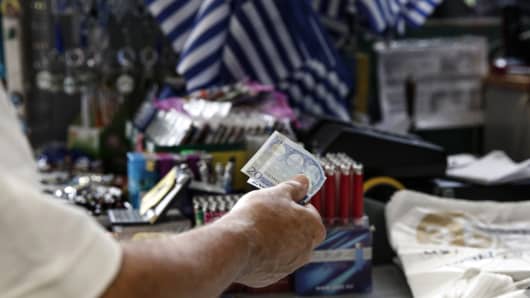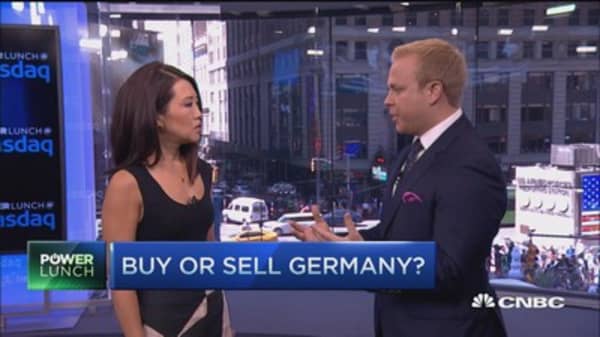The sharp intensification in the Greek crisis over the summer has had profound consequences on the political make-up of Europe. At the height of the Greek crisis, leaders were pushed to reluctantly pick sides which resulted in behind-closed-doors arguments and disagreements.
The politically motivated discussions that took place during the Greek crisis, while it would make a good class on game theory, is also representative of how each country - in some ways - was using Greece as an opportunity to showcase their diverse economic viewpoints. The doves and the hawks. The austerity lovers and haters. The generous and meager.
At the height of the crisis, French President Francois Hollande was outspoken in his support of Greece's revised reforms proposal, suggesting that the head of the Eurogroup of euro zone finance ministers Jeroen Dijsselbloem and Germany's Angela Merkel to take seriously a closer look at this round of edits. In order to understand what motivated Hollande to speak up, one must understand the economic backstory of France, which is dealing with a series of challenges - not to mention slowing growth as shown in the recent growth figures. Showing support at a time when Greece needs it most will hopefully lead to France getting the support from euro zone nations if the country comes to a point where it will need extra help from its peers or the ECB.
And while just like on any school playground picking a "team" is part of the process, you'll always remember those who showed their support of you and those did not. Political experts in Brussels tell CNBC that this will motivate future talks that take place on broader issues that euro zone leaders will have to find a solution to. The lack of cohesion could lead to slow decision making. And when a country or continent is in crisis mode, every minute counts.
The fear is that after an intense couple of months, where leaders were forced into long drawn out talks and emergency summits to discuss the fate of Greece, individual country representatives have left with a sour taste in their mouth. Those who thought a certain leader was their friend, now have to rethink his or her ally. The talks were not around boosting European growth, or strengthening relations with the US, instead, they had to focus on the sick dog that needed more money to get back on its feet.
A sense of lost pride in the euro zone? Perhaps not - but politically, the region was stronger before the Greek crisis erupted and now it is left weaker and more divided than it has ever been.
The geopolitical and economic consequences could be deep-seated and widespread if leaders aren't careful.
There is also a strong sense that nations like Spain, Portugal, Ireland, that took their financial hits will be more reluctant to play by the rules going forward, which John E Silvia, Chief Economist at Wells Fargo says could be a moral hazard and credibility problem for the euro zone.
The lack of unity is also apparent within each euro zone country. While the third Greek bail-out was passed by the German Bundestag, more rebellions within Chancellor Angela Merkel's party have been pushing back. Some market participants say this is a warning sign that the euroskeptics in Germany are unhappy and could make life even more tough for Merkel in the coming months, especially around the Greek debt relief talks which kick-off in the fall.
My recommendation - rent out a villa by the beach for heads of state and make it a rule that no leader is allowed to discuss Greece. But figuring out which country will play host will probably lead to another round of heated debates so perhaps that's a bad idea.





